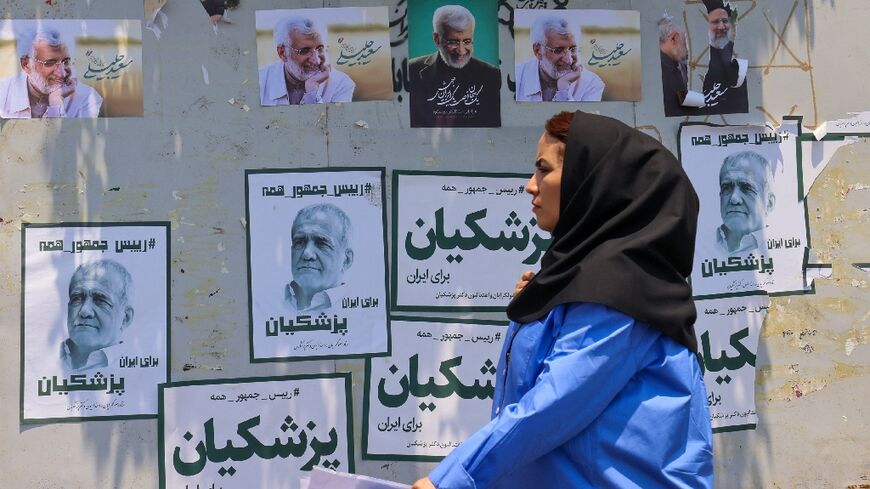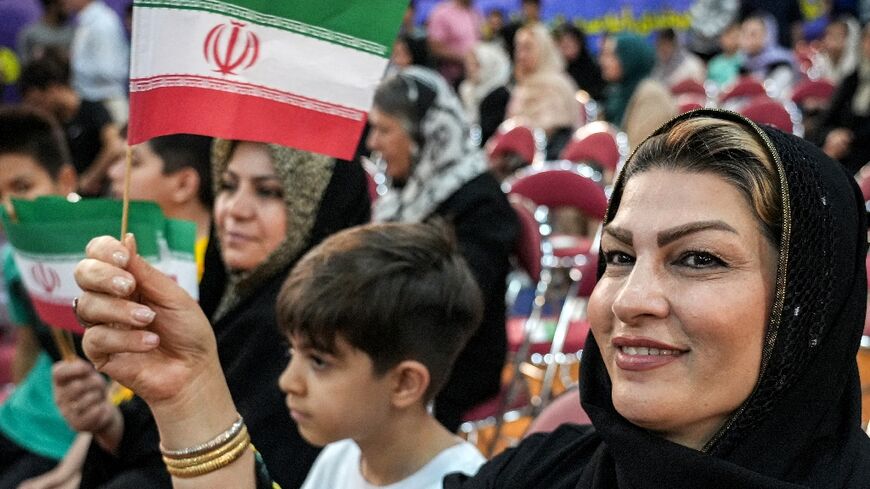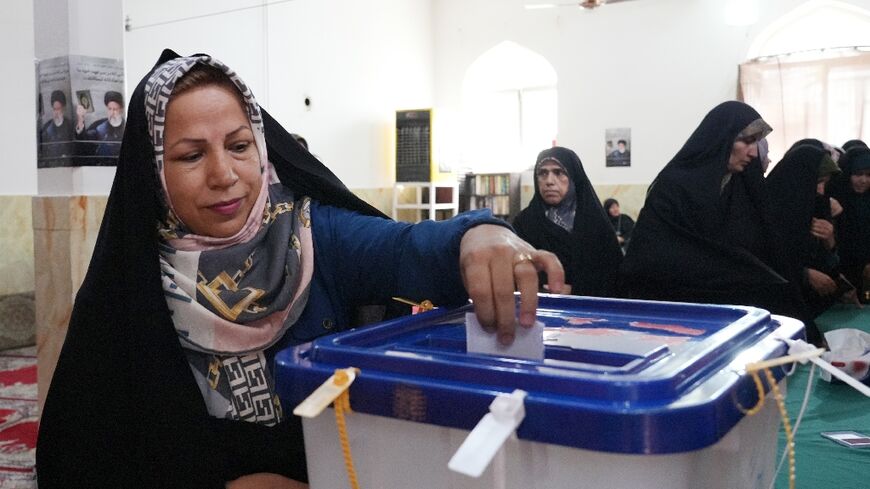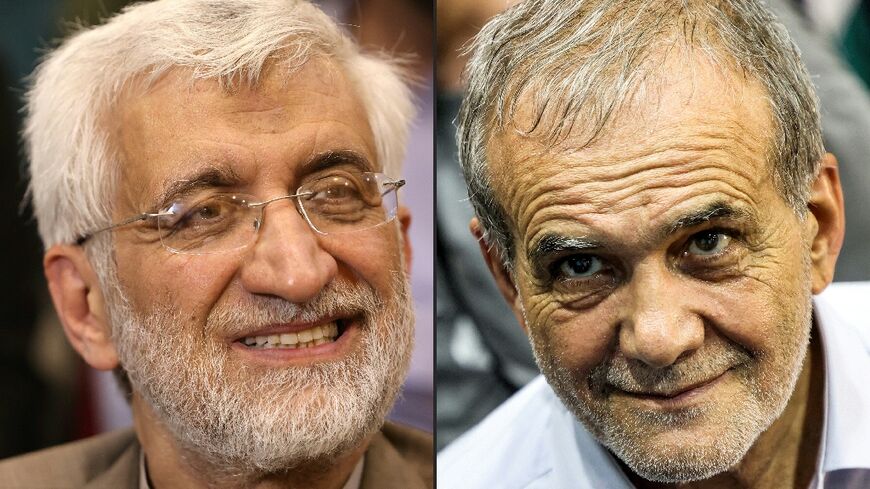Iran's Khamenei urges 'high participation' in presidential vote
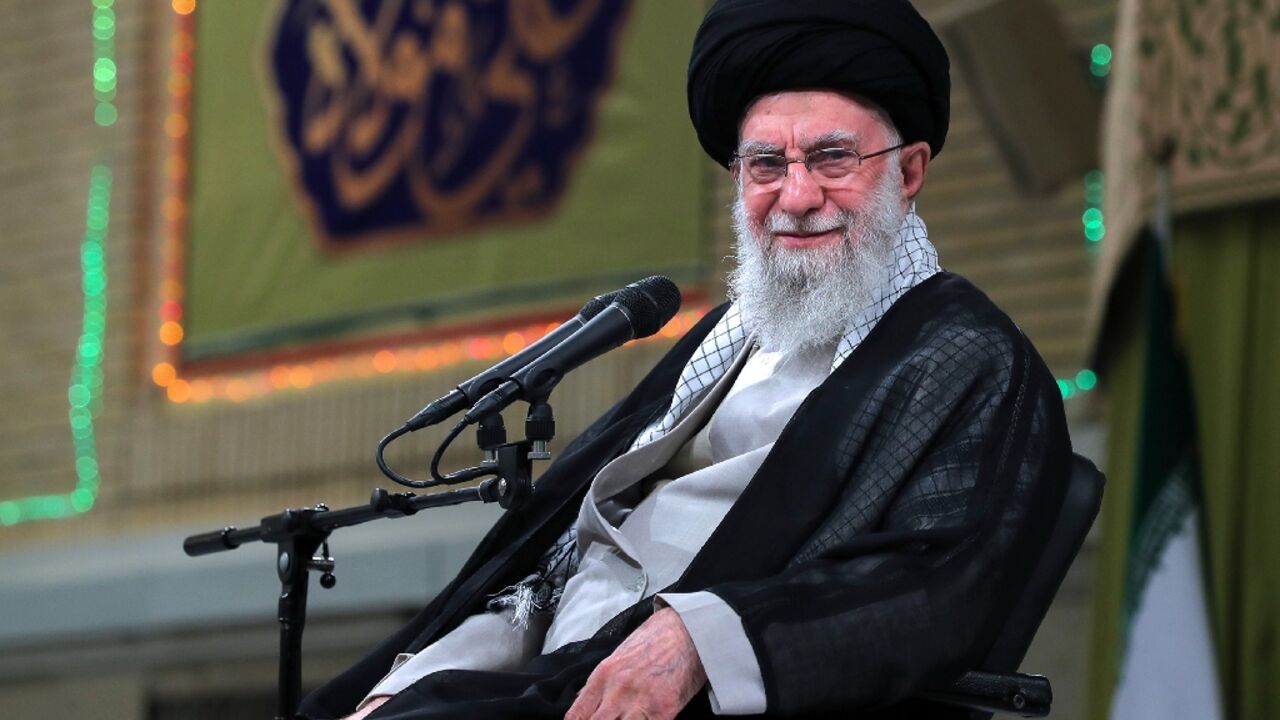
Iranian supreme leader Ayatollah Ali Khamenei called for "high participation" in Friday's presidential election to replace Ebrahim Raisi, who died last month in a helicopter crash.
"We emphasise the importance of high participation (in the election) because it is the pride of the Islamic republic," Khamenei declared in a televised speech three days ahead of the vote.
"In every election where the turnout was low, the enemies of the Islamic republic have denounced us," he added.
Voters can choose from six candidates selected by the conservative-dominated Guardian Council, out of 80 hopefuls.
The frontrunners are conservative parliament speaker Mohammad Bagher Ghalibaf, ultraconservative former nuclear negotiator Saeed Jalili, and reformist lawmaker Massoud Pezeshkian.
In the 2021 presidential election, the authorities invalidated many reformist and moderate candidates, allowing the conservative Raisi to be easily elected, succeeding moderate president Hassan Rouhani.
"I did not vote in the previous election and agreed with the majority who feel there is no ear to hear their voices and no hand to solve their problems," said former president and reformists' leader Mohammad Khatami in a video message published on Tuesday.
Turnout was 49 percent in that election, the lowest since the 1979 Islamic Revolution.
Khatami called the upcoming vote "an opportunity" for a "change" and endorsed Pezeshkian, calling him "righteous, justice-seeking, anti-corruption and meritocratic".
Meanwhile, the supreme leader in his speech on Tuesday criticised "certain Iranian politicians" for believing "all paths to progress pass through the United States", Iran's arch-enemy.
Khamenei did not name any politicians, but his remarks were likely directed at Pezeshkian, the reformist candidate.
Pezeshkian has called for improving ties with Washington to lift biting sanctions that have heavily impacted the Iranian economy.
The next president will face economic challenges such as high inflation and unemployment, amid regional tensions, the Gaza conflict, and international scrutiny of Iran's nuclear programme.
